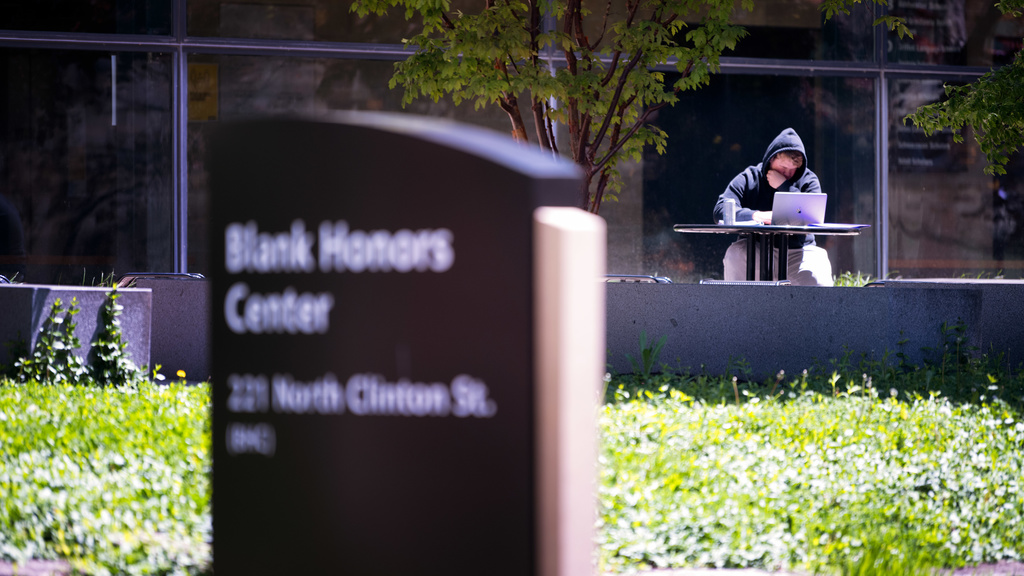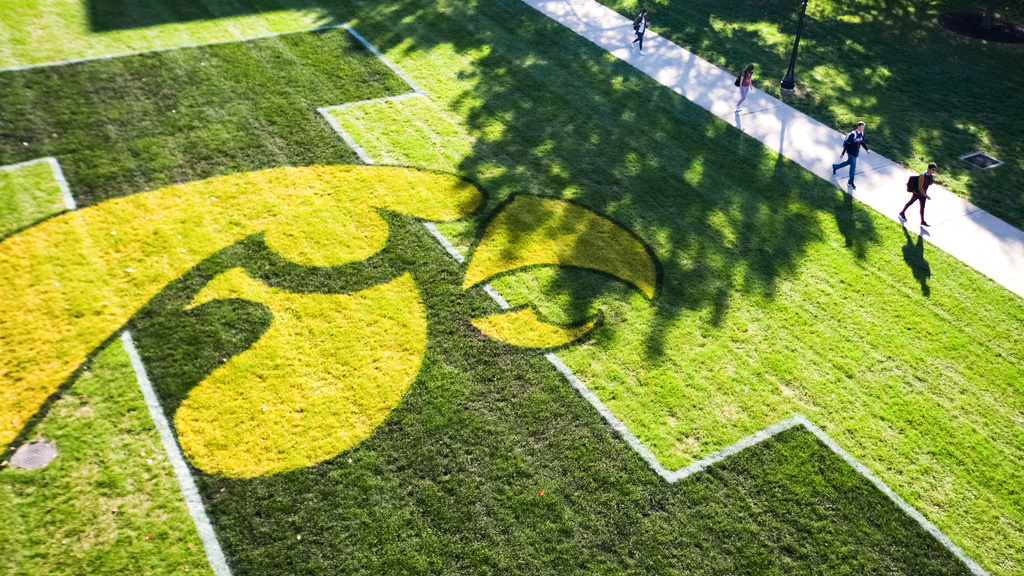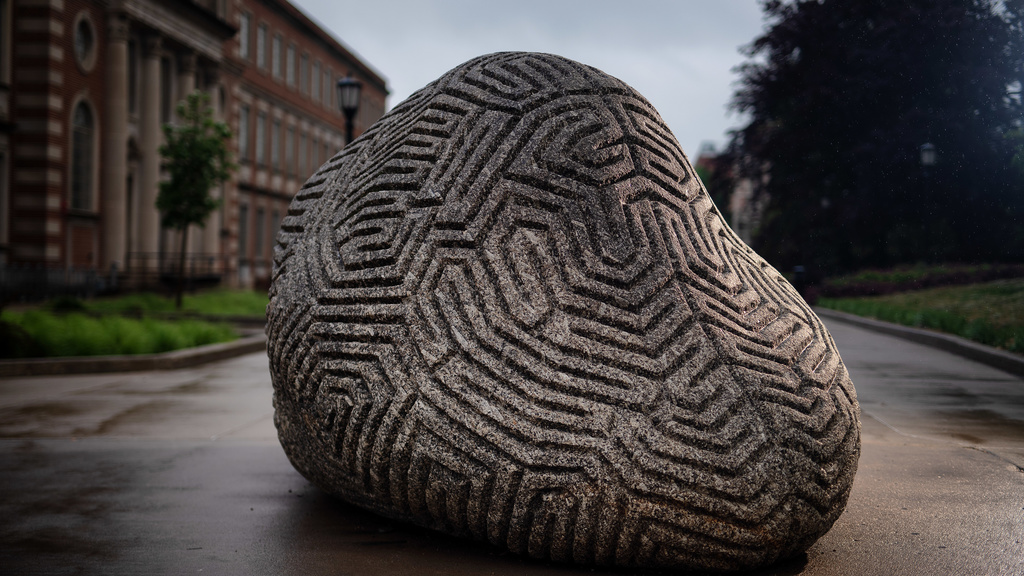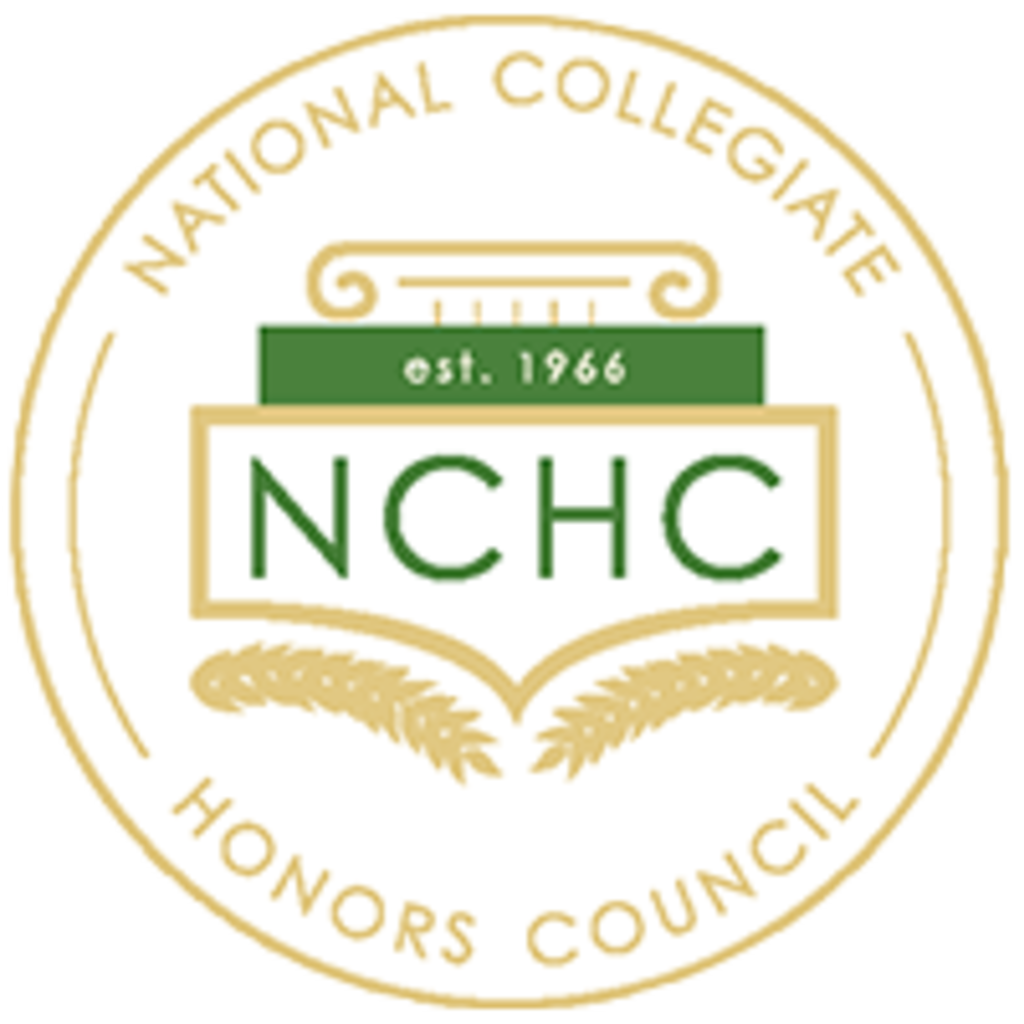The University of Iowa Honors Program seeks to nurture a deeper understanding of one’s discipline and self.
Central to that is embracing and seeking to cultivate intellectual curiosity.

Our Mission
The mission of the University of Iowa Honors Program is to enrich the undergraduate experience by cultivating intellectual curiosity, promoting engaged, active learning, and developing students’ self-motivation. Central to this enrichment is the Honors Program curriculum and community. The program fosters connections to faculty and peers through engaging coursework and experiential learning.
How did Honors at Iowa begin?
The University of Iowa Honors Program was created in 1958 by Samuel Rhodes Dunlap. Professor Dunlap introduced the program as a response to the U.S. government’s call for better and more competitive education. His intent was to ensure the University’s position as a leader in research and learning. Dunlap was the program director from its founding in 1958 until his retirement in 1981, and was instrumental in the growth of the program from the half-dozen or so departments at its beginning to the many involved when he retired. He worked with the various departments to get them interested, and was also involved with honors at the national level. He attended many conferences and seminars across the country in order to promote honors.
Home of Honors
The Blank Honors Center (BHC) is home to classrooms, an instructional technology center (ITC) and study rooms (3rd floor), Honors Program offices (fourth floor), as well as the Belin-Blank Center (5th and 6th floors).
The Blank Honors Center is open Monday-Friday 8 AM - 5 PM. Swipe access to the 3rd & 4th Floor is available from 7 AM - 12 AM Sunday through Thursday and 7 AM - 10 PM Friday and Saturday. Be sure to use your Iowa One card for access.
Visit https://classrooms.uiowa.edu/study-rooms for additional available study locations.

Honors Today
Honors at Iowa has taken different forms across time. Since 2013, the University of Iowa has awarded University Honors at graduation (noted on transcript and diploma) to honors students who complete the curriculum of 12 honors credits in coursework and 12 in experiential learning from a menu of options promoting many of the powerful learning experiences the University offers such as mentored research, study abroad, service learning, internships and experiential coursework. In addition, students may earn honors in the major recognition through their departments.

Our Vision
The University of Iowa Honors Program strives to create community-minded spaces for students who are motivated by intentional, meaningful learning and who possess a need for cognition. Honors students will develop the skills necessary for lifelong learning, including reflective habits and examining assumptions about the world and themselves.

Professional Affiliations
The National Collegiate Honors Council (NCHC), founded in 1965, is a nonprofit organization that supports the community of educational institutions, professionals, and students who participate in collegiate honors education around the world. The NCHC provides publications, honors program/college reviews, professional development, an annual professional conference, and networking opportunities to its members, as well as experiential travel programs and honors student awards and scholarships.
Looking for a fun study space?
Come visit the BHC 3rd floor patio! It is open during warmer months, 8AM - 5PM. Enjoy a quiet study space outside!
The Names of Honors
University of Iowa Honors Program (aka “Honors Program” and UIHP) – official name of selective program for undergraduates which offers members classes, advising, scholarships, and programming as early as the week before fall semester (i.e. Primetime) and continues through graduation (i.e. Honors Commendation Ceremony)
University Honors – program of study (POS, like a major, minor, or certificate) with coursework and experiential learning requirements the successful completion of which is recognized with the honors medal and notation on transcript and diploma at graduation
Honors at Iowa – nickname & hashtag on social media, publications, or our website
Honors in the Major – departmental honors not restricted to members of UIHP; not the same as the honors program (although successful completion fulfills the experiential learning requirement for University Honors); usually undertaken by undergraduates in third or fourth year